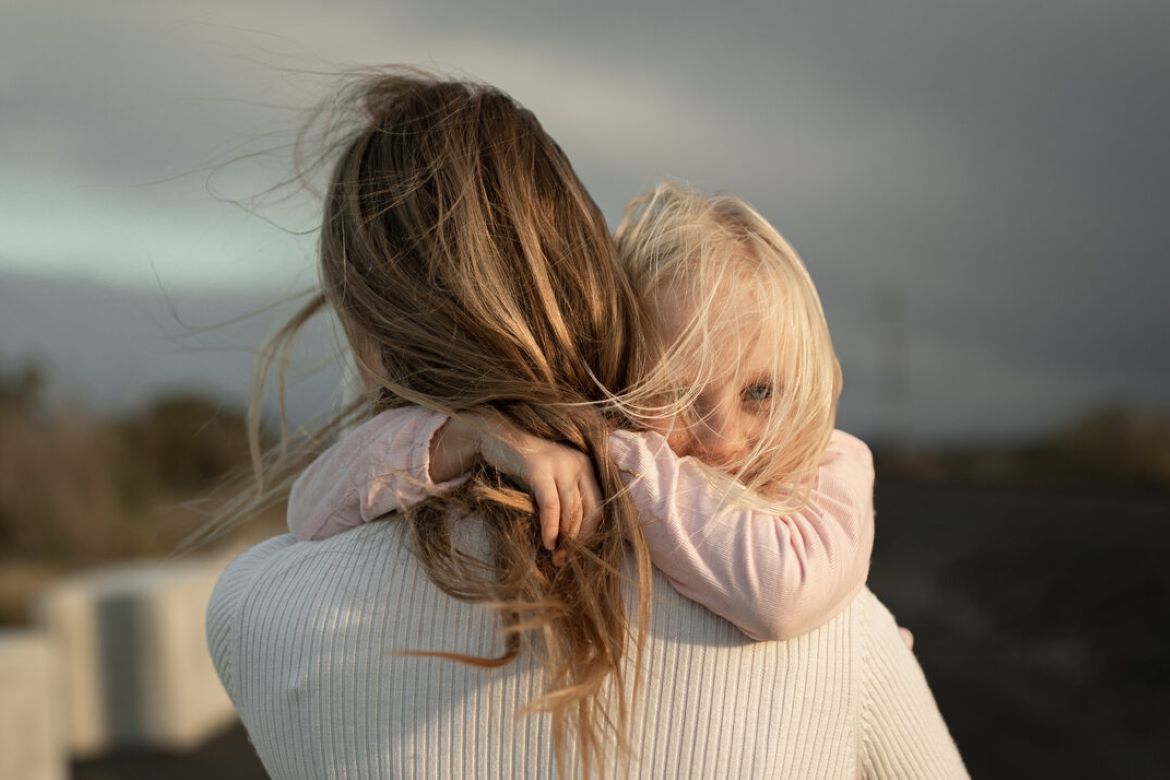By Adrienne Wood
Parental guilt seems to be an inevitable and unenviable burden we carry as parents whether we want it or not. It doesn’t seem to matter what caused the problem. If our children are unhappy, it’s somehow our fault. We worry we’re being too critical, then worry we’re maybe being too kind. Are we pushing too hard, or are we maybe not pushing hard enough? Are we spending too much time on housework instead of the kids or are we putting the family to shame by not having the house tidy enough? Are we overly affectionate or are we not affection enough? We walk day in, day out with this nagging sense of guilt that we are maybe somehow destroying our child’s chances of future happiness because of our actions.
It’s exhausting worrying so much of the time about another human being and inevitably it leads to stress, which can lead to more regrettable behaviour all over again. So what should we do with all this parental guilt and shame? Should we attempt to just sweep guilt from our minds, like some experts suggest?
It’s exhausting worrying so much of the time about another human being and inevitably it leads to stress, which can lead to more regrettable behaviour all over again.
THE DIFFERENCE BETWEEN GUILT AND SHAME
The thing is, there’s a real difference between guilt and shame, and it’s important to know the difference. Researcher Brene Brown says it best. In her March 2012 TED talk she explains that guilt makes us feel that “I did something bad” and leads us to say, “I’m sorry I made a mistake.” Shame, however, leads us to feel that “I am bad” and leads us to think, “I’m sorry. I am a mistake.” She goes on to say that shame is highly correlated with addiction, depression, violence, aggression, bullying, suicide and eating disorders. Guilt, by contrast, is inversely correlated with these things, meaning it leads people away from these sorts of behaviours, not towards them.
Guilt, you see, triggers a sense of remorse. And true remorse can lead to actions that build healing and love. When I feel guilty, it’s usually because I fear I have hurt someone I care about, and that leaves me carrying a longing within me to make it right again.
Shame, on the other hand, is an emotion that robs us of our energy. If I choose to believe that niggling voice that tells me “you’ve messed up this time” and “you’re just not good enough” then I am flooded with a sense of inadequacy and helplessness that leaves me collapsed on the couch scrolling aimlessly on Facebook, or Instagram.
THE TRUTH ABOUT EMOTIONS
The truth is that we all do things we regret as parents. We shout, we threaten, we coerce, we bribe. We know we shouldn’t do these things and it makes us feel bad but what are we supposed to do? Parenting children can be so incredibly frustrating! In no other context are we asked to give so generously, so self sacrificially nor so mercilessly often, whether it be in the dead of the night or in the middle the day during an important work presentation.
But if we allow guilt over our bad judgement calls to turn to shame, it can cripple us. The recrimination thrown at us by others and by our own inner critical voice an be so intense it can be debilitating. But who can afford the luxury of a breakdown when we’re parenting? Food still needs to land on the table, the housework still needs to be done and money must still be earned to pay the rent. Often, as a way of keeping us functioning, the brain moves to a defensive “shut down” mode to protect us from this sense of overwhelm.
The recrimination thrown at us by others and by our own inner critical voice an be so intense it can be debilitating.
Psychologist Gordon Neufeld expands on the construct of a “defended heart” in his course The Science of Emotion. He explains how emotions that trigger significant distress in us can be shut down by the brain creating a kind of “inner armour” inside us to stop us constantly feeling flooded with the overwhelm. As a result, we can now function again, on the surface. But the cost is huge. Our ability to keep functioning has come at the expense of our ability to feel things…truthfully and deeply.
If we live shut down to our vulnerable emotions, then how can we feel compassion for someone in need? How can we feel our uncertainty when instinctively compelled to lash out? How can we feel our regret when we don’t manage to hold that aggression back? You see, emotions are meant to move us. They move us from one emotional state to another. Alarm moves us to take caution in a dangerous situation. Tears of sadness can move us from a place of frustration to a place of acceptance.











